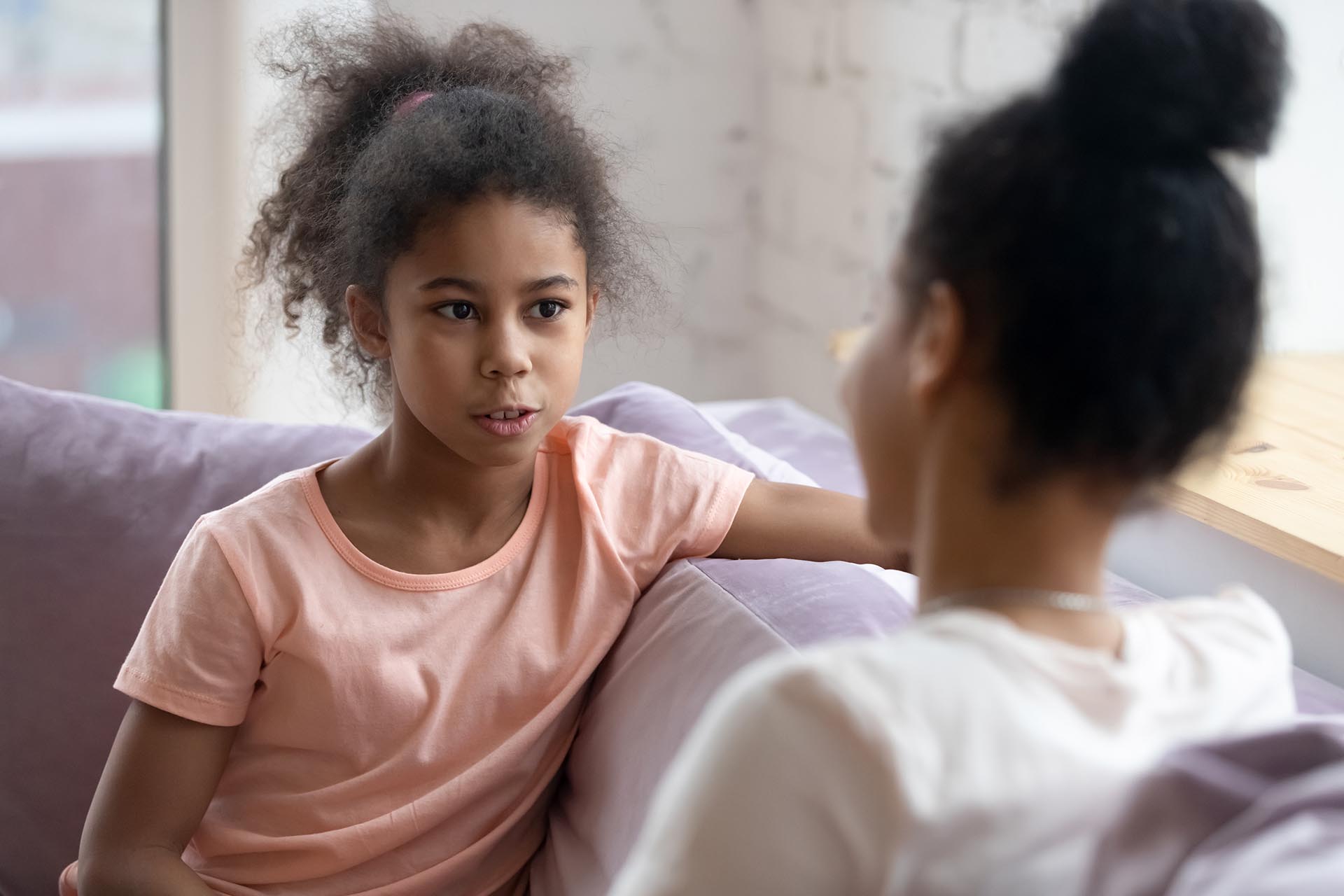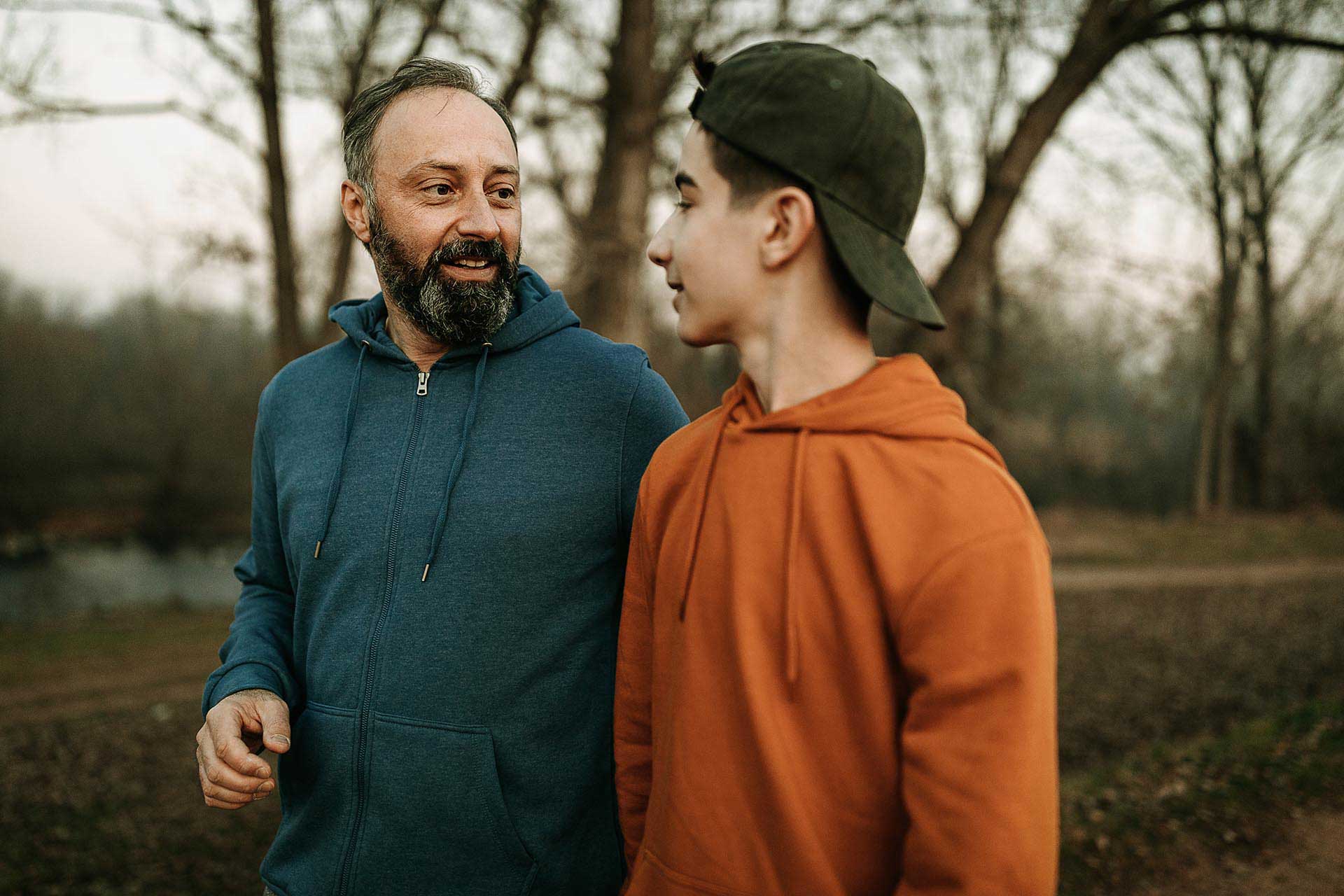This is one of the most frequent questions we get from parents and caregivers. With many adults never having received much in the way of sexuality and relationships education when they were young, they’re unsure how to have these talks with their kids now. So, here’s some of our tips on getting that conversation started around consent, puberty, periods, sex, friendships, pornography, or whatever it may be.
Of course, the idea of ‘The Talk’ is misleading; none of these topics should ever just be covered in the one conversation. Hopefully you will have been checking in and having chats about a range of issues throughout their whole lives. If we can engineer a series of little talks, where we build knowledge, cover new ground, reinforce previous messages, then that is ideal. Rather than the formal sit down summit meeting, casual chats that are frequent, and ongoing, allow for everyone to feel more comfortable, and even more importantly, they’re more likely to be a two-way communication rather than a one-way lecture.
First of all, take the pressure off yourself. You aren’t always going to get it right, and that’s OK. It doesn’t mean you shouldn’t try. And that’s why having lots of little incidental chats can be better than feeling like you’ve got to approach a conversation as if it’s THE conversation, and the only one you’ll ever have on the topic.
Using your normal voice is important, not a formal, explaining voice. Keep your voice even-toned and casual. This helps to put our children at ease because they take their lead from us and are super-attuned to tension, even when we think we’re hiding it. And try and be neutral in what you’re saying (we don’t want to make them feel embarrassed or ashamed, but we don’t want to be ‘Yay! Periods!’ either).
A great approach to any topic of conversation is, instead of beginning with your opinion (once they get to a certain age they may not listen anyway), start with: ‘So what do you plan to do?’ or ‘What do you think about this?’ Get them to share their ideas first. This will help establish a dialogue and make your child feel involved. And no matter their answers to these questions, be wary of responding with expressions like ‘you don’t understand’, ‘you don’t know what you’re talking about’ and ‘you’re too young’. They’ll become defensive even if they know you’re right.
If you’re still feeling a bit stuck, here are a few examples of how to break the ice:
Puberty
‘So I realise that you’re getting to a point where soon some of your classmates will be hitting puberty. Have you heard of puberty before? Do you know what happens and what it means? It’s something that’s completely normal and happens to everyone. Some parts of puberty only boys get, and some only girls, but a lot of things happen to both boys and girls. Would it be OK if we had a chat about it now?’
Periods
‘Remember those chats we had about puberty? I know we touched on periods, but I’d like to talk to you a bit more about what periods are because it’s a big topic and can be a little confusing. What do you know about periods? Have any of your friends got theirs yet? You don’t have to tell me who. Periods can seem big and scary but actually they’re completely normal, and everyone who has a uterus gets them for a long part of their lives. Can we talk about this now?’
If your child is a boy you might want to add: ‘I know that you might be thinking that you don’t need to know about this, but actually it’s important for you to understand how puberty and reproduction works for both boys and girls.’
Sex and babies
‘I was watching a television show the other day and it said that babies come from stalks. What do you think about that? Do you know where babies actually come from? It’s pretty interesting how it works. Have you heard anything before about sex? You might have heard that it’s when a man puts his penis inside a woman’s vagina. And that’s true, but there’s a lot more to it than that. There’s a lot of wrong information out there, and it’s important that you know the facts. Do you think we could have a chat about it now?’
Pornography (under 11)
‘There are things on the internet that aren’t for children. Sometimes there are videos of people with no clothes on. They might be hurting each other and making strange sounds. If you ever see anything like this, look away immediately and tell a trusted adult straight away. You won’t ever get into trouble.’
Pornography (11-14 years)
‘I want to talk to you about something that might be a bit awkward but I think it’s important. Is that okay? Have you heard about pornography? What do you know about it? I am concerned about the messages it gives about what is real and what is not. Could we have a chat about this?’
Respect
‘I’ve been thinking a lot lately about respect. It’s the reason why we’re staying at home right now, out of respect for others. I know it can seem like a bit of a weird thing to talk about, but I think it’s important to think about what it means to respect the people around you, what respect looks like and also what disrespect can look like. Can you think of any times you’ve seen someone show respect clearly? What do you think are some examples of disrespectful behaviour? Why do you think it’s important to show respect for other people?’
Friendships
‘Do you think you’ll miss your friends these school holidays? Are there any friends that you would have missed a year or two ago but you won’t miss so much now? You know, that’s OK – friendships change and that’s normal. It’s also OK if you’re looking forward to just being alone these holidays. It’s a wonderful thing to have friends, but it can also be tricky or difficult at times. I’d like to have a little chat about friendships with you now, is that alright?’
Dating and consent
This is something we cover in depth in our last blog post, including age-appropriate conversation starters. It’s a big one to cover, so we recommend going back and reading it here.
If you think you’ve ‘stuffed up’ a talk
Sometimes during these conversations our kids can say something that catches us off guard and we don’t respond well, or we might even ourselves give them wrong information. That’s OK, we’re not going to get it right every time, and you can always come back to a conversation even months later.
‘Remember when we were talking about X? Well, I’ve been thinking, and I realise now that I handled it all wrong or could have handled it better, I’m sorry. I shouldn’t have freaked out like I did because I made it all about me rather than just listening to you. So I want to apologise for that, and I want to let you know that I’m going to try to stay calm in the future. I want you to feel you can come to me.’
‘Remember when we were talking about X? Well I realised that what I said about Y was wrong. I’m sorry about that. I guess it just shows how easily misinformation can spread. I’ve done some more research since then that I’d like to share with you, can we chat now?’










